Economy
5 Reasons Why Canada Should Be a Global Oil Supplier of Choice
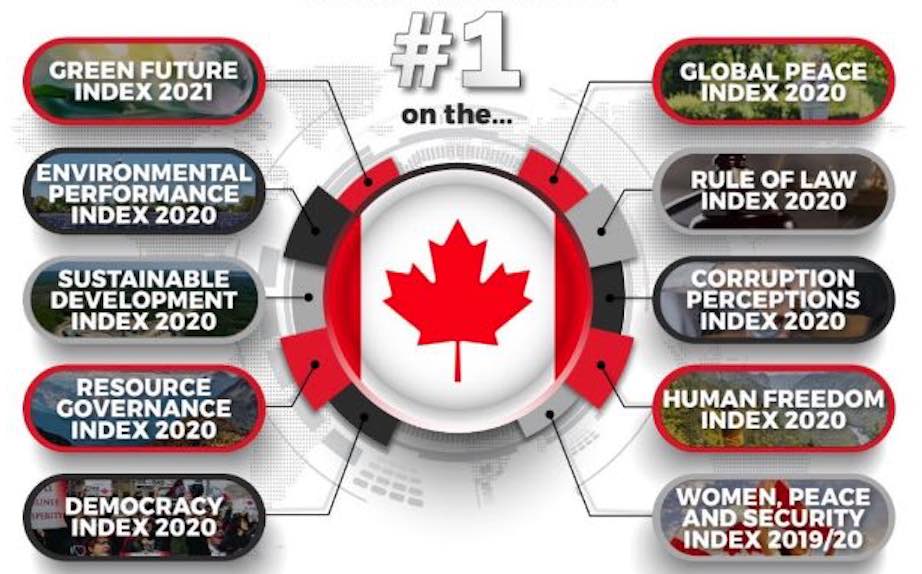
Post Submitted by Canada Action

#1 – Unprecedented Net-Zero Commitment
Canada’s largest oil sands producers just announced an unprecedented commitment to reaching net-zero emissions by 2050!
The net-zero term – used to describe the process of removing all greenhouse gas (GHG) emissions by reduction methods – has become an increasingly important mandate for companies looking to continue attracting investment while participating in the transition to a lower-carbon future.
Accounting for about 90 per cent of oil sands production, the new five-member alliance is just one of many examples of why Canadian producers should be go-to oil suppliers of choice for buyers worldwide.
#2 – Continual GHG Emission Reductions
The emissions intensities of oil sands operations dropped by 36 per cent between 2000 and 2018due to fewer gas venting emissions, technological and efficiency improvements and reductions in the percentage of bitumen upgraded at national refineries says Natural Resources Canada.
Oil sands emissions intensities per barrel are also forecast by IHS Markit to drop another 16 to 23 per cent by 2030 due to continued innovation and technological advancement in the Canadian oil and gas sector.
This matters in an increasingly carbon-constrained world where going “green” has been put at the forefront of investors’ minds around the globe. According to these standards, investment cash should be flowing into Canada in droves for its dedication to the sustainable production of its natural resources such as oil, natural gas and minerals to name a few.
#3 – Leader in Social Progress
Social Progress Imperative lists Canada as seventh out of 163 countries on its Social Progress Index 2020, outranking all other major global oil jurisdictions except Norway. The annual index examines a total of 50 social and environmental indicators across 12 major subcategories, including:
If you value social progress, the choice is clear. Canada ranks number one out of all the world’s top oil producers, exporters and reserve holders except for Norway and should be a global supplier of choice.
#4 – Carbon Pricing in a Carbon-Constrained World
Home to roughly 80 per cent of Canada’s total oil production, Alberta is one of the few global oil jurisdictions with mandatory disclosures, regulated emissions protocols and carbon taxes on excess GHGs.
In 2007, the province also became the first jurisdiction in North America and one of the first in the world just behind the European Union to take climate action with mandatory GHG emission reduction targets for large industrial emitters across all industries.
To add, only 10.5 per cent of global crude oil production is subject to carbon pricing, of which about 40 per cent is accounted for by Canada (with ~4.2 per cent of global output).
Carbon pricing and mandatory GHG emissions protocols matter huge in a carbon-constrained world. Therefore, Canada’s current policies indicate that it should be a choice supplier of oil and gas for decades to come.
#5 – A World-Class Regulatory Environment
Canada’s oil and gas producers are subject to some of the most stringent regulations and governance standards for energy projects anywhere on the planet. It only makes sense that future oil and gas supply comes from highly transparent producers like Canada that practice environmentally conscious extraction and production techniques.
Shutting down Canadian pipelines carrying Canadian oil has not kept one barrel of oil in the ground. What this has accomplished, however, is the displacement of global market share to less environmentally conscious producers who, in many instances, have abysmal records on social progress indicators such as freedom of expression and other basic human rights.
More Oil & Gas in Canada
Canada Should Be a Supplier of Choice
Canada’s proven track record on Environmental, Social and Governance metrics means that we should be a global supplier of choice for oil, gas, minerals, metals, agricultural products, forestry products and everything in between.
Support Canadian resource families and learn more about our world-class natural resource sectors by joining us on Twitter, Instagram and Facebook today. Hope to see you there!
Alberta
Upgrades at Port of Churchill spark ambitions for nation-building Arctic exports

In August 2024, a shipment of zinc concentrate departed from the Port of Churchill — marking the port’s first export of critical minerals in over two decades. Photo courtesy Arctic Gateway Group
From the Canadian Energy Centre
By Will Gibson
‘Churchill presents huge opportunities when it comes to mining, agriculture and energy’
When flooding in northern Manitoba washed out the rail line connecting the Town of Churchill to the rest of the country in May 2017, it cast serious questions about the future of the community of 900 people on the shores of Hudson Bay.
Eight years later, the provincial and federal governments have invested in Churchill as a crucial nation-building corridor opportunity to get resources from the Prairies to markets in Europe, Africa and South America.
Direct links to ocean and rail

Aerial view of the Hudson Bay Railway that connects to the Port of Churchill. Photo courtesy Arctic Gateway Group
The Port of Churchill is unique in North America.
Built in the 1920s for summer shipments of grain, it’s the continent’s only deepwater seaport with direct access to the Arctic Ocean and a direct link to the continental rail network, through the Hudson Bay Railway.
The port has four berths and is capable of handling large vessels. Having spent the past seven years upgrading both the rail line and the port, its owners are ready to expand shipping.
“After investing a lot to improve infrastructure that was neglected for decades, we see the possibilities and opportunities for commodities to come through Churchill whether that is critical minerals, grain, potash or energy,” said Chris Avery, CEO of the Arctic Gateway Group (AGG), a partnership of 29 First Nations and 12 remote northern Manitoba communities that owns the port and rail line.
“We are pleased to be in the conversation for these nation-building projects.”
In May, Canada’s Western premiers called for the Prime Minister’s full support for the development of an economic corridor connecting ports on the northwest coast and Hudson’s Bay, ultimately reaching Grays Bay, Nunavut.
Investments in Port of Churchill upgrades
AGG, which purchased the rail line and port from an American company in 2017, is not alone in the bullish view of Churchill’s future.
In February, Manitoba Premier Wab Kinew announced an investment of $36.4 million over two years in infrastructure projects at the port aimed at growing international trade.
“Churchill presents huge opportunities when it comes to mining, agriculture and energy,” Kinew said in a release.
“These new investments will build up Manitoba’s economic strength and open our province to new trading opportunities.”
In March, the federal government committed $175 million over five years to the project including $125 million to support the rail line and $50 million to develop the port.
“It’s important to point out that investing in Churchill was something that both the Liberal and Conservative parties agreed on during the federal election campaign,” said Avery, a British Columbian who worked in the airline industry for more than two decades before joining AGG.
Reduced travel time
The federal financial support helped AGG upgrade the rail line, repairing the 20 different locations where it was washed out by flooding in 2017.
Improvements included laying more than 1,600 rail cars worth of ballast rock for stabilization and drainage, installing almost 120,000 new railway ties and undertaking major bridge crossing rehabilitations and switch upgrades.
The result has seen travel time by rail reduced by three hours — or about 10 per cent — between The Pas and Churchill.
AGG also built a dedicated storage facility for critical minerals and other commodities at the port, the first new building in several decades.
Those improvements led to a milestone in August 2024, when a shipment of zinc concentrate was shipped from the port to Belgium. It was the first critical minerals shipment from Churchill in more than two decades.
The zinc concentrate was mined at Snow Lake, Manitoba, loaded on rail cars at The Pas and moved to Churchill. It’s a scenario Avery hopes to see repeated with other commodities from the Prairies.
Addressing Arctic challenges
The emergence of new technologies has helped AGG work around the challenges of melting permafrost under the rail line and ice in Hudson Bay, he said.
Real-time ground-penetrating radar and LiDAR data from sensors attached to locomotives can identify potential problems, while regular drone flights scan the track, artificial intelligence mines the data for issues, and GPS provides exact locations for maintenance.
The group has worked with permafrost researchers from the University of Calgary, Université Laval and Royal Military College to better manage the challenge. “Some of these technologies, such as artificial intelligence and LiDAR, weren’t readily available five years ago, let alone two decades,” Avery said.
On the open water, AGG is working with researchers from the University of Manitoba to study sea ice and the change in sea lanes.
“Icebreakers would be a game-changer for our shipping operations and would allow year-round shipping in the short-term,” he said.
“Without icebreakers, the shipping season is currently about four and a half months of the year, from April to early November, but that is going to continue to increase in the coming decades.”
Interest from potential shippers, including energy producers, has grown since last year’s election in the United States, Avery said.
“We’re going to continue to work closely with all levels of government to get Canada’s products to markets around the world. That’s building our nation. That’s why we are excited for the future.”
Alberta
OPEC+ is playing a dangerous game with oil

This article supplied by Troy Media.
OPEC+ is cranking up oil supply into a weak market. It’s tried this strategy before, and it backfired
OPEC+ is once again charging headfirst into a market share war—a strategy that has repeatedly ended in disaster. Despite weak global demand, falling prices and rising output from non-OPEC countries, the cartel has chosen to flood the market. History shows this tactic rarely ends well for
OPEC+ or oil producers worldwide, including Canada.
OPEC+, a group of major oil-exporting countries led by Saudi Arabia and Russia, works together to manage global oil supply and influence prices. Its decisions have far-reaching consequences for the global energy market—including for Canadian oil producers.
Last Saturday, eight leading members of OPEC+ announced, after a virtual meeting, that they would increase production by 548,000 barrels per day starting in August. That is significantly more than the group’s recent additions of 411,000 bpd, and it puts them on track to fully unwind their
previous 2.2 million bpd in cuts a full year ahead of schedule.
It is a bold move, but it comes at a questionable time.
There is little geopolitical premium built into current oil prices, and the global market is already oversupplied. Brent crude futures are down more than six per cent so far this year. Analysts estimate inventories have been climbing by a million barrels per day in 2025 due in part to cooling demand in China and rising output from countries outside OPEC.
S&P Global Commodity Insights forecasts a supply surplus of 1.25 million barrels per day in the second half of the year. Brent crude stood at about US$68 per barrel on Friday, but S&P says it could fall to between US$50 and $60 later this year and into 2026. West Texas Intermediate, the U.S. benchmark, is also at risk of dropping below US$50 per barrel.
Canada is the world’s fourth-largest oil producer, with most of its output coming from Alberta’s oil sands. Though Canadian producers have higher costs than some OPEC+ members, their innovation and access to U.S. markets have made them increasingly competitive.
While the seasonal demand boost might justify a modest increase, OPEC+, especially Saudi Arabia, appears primarily motivated by market share concerns. With U.S. shale and countries like Canada, Kazakhstan and Guyana gaining ground, the cartel is falling back on its old tactic of flooding the market to squeeze out competitors.
Some observers, including Stanley Reed in The New York Times, have suggested that the move may be designed to please U.S. President Donald Trump, who “has made courting Saudi Arabia and regional allies like the United Arab Emirates a priority of his foreign policy.” But even geopolitical gamesmanship has not shielded OPEC+ from the consequences before—and likely will not this time either.
Back in 2014, fed up with the U.S. shale boom, OPEC opened the taps. The goal was to drive prices low enough to force out higher-cost producers. Instead, oil plunged into the US$30 range. According to the World Bank, the 70 per cent drop during that period was one of the three biggest oil crashes since the Second World War and the most prolonged since the supply-driven collapse of 1986. Saudi Arabia’s respected oil minister, Ali Al-Naimi, lost his job in the aftermath.
Then, in April 2020, as the COVID-19 pandemic loomed, OPEC and Russia launched a production war that sent oil prices into freefall, briefly into negative territory. Trump had to broker a ceasefire to rescue the U.S. shale industry, forcing Riyadh and Moscow to pull back. Both sides suffered significant economic damage.
For Canada, especially Alberta, the current fallout could be severe. The province is home to most of the country’s oil sands production. Cheaper global crude undercuts Canadian prices, squeezes royalty revenues, chills investment and puts jobs at risk across Canada. And this comes as governments are already grappling with fiscal pressures.
The oil market does not reward short-term thinking. If OPEC+ continues down this road, history suggests the outcome will be painful for them and the rest of us.
Toronto-based Rashid Husain Syed is a highly regarded analyst specializing in energy and politics, particularly in the Middle East. In addition to his contributions to local and international newspapers, Rashid frequently lends his expertise as a speaker at global conferences. Organizations such as the Department of Energy in Washington and the International Energy Agency in Paris have sought his insights on global energy matters.
Troy Media empowers Canadian community news outlets by providing independent, insightful analysis and commentary. Our mission is to support local media in helping Canadians stay informed and engaged by delivering reliable content that strengthens community connections and deepens understanding across the country
-
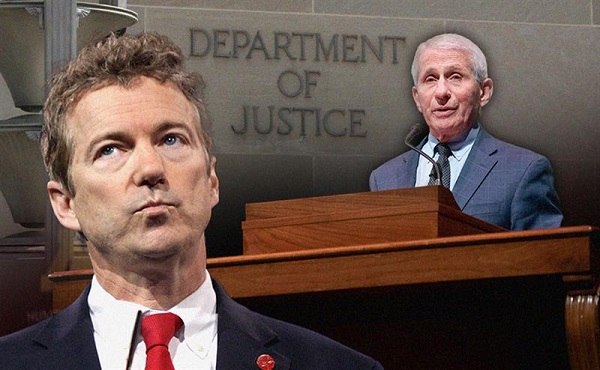
 COVID-192 days ago
COVID-192 days agoSen. Rand Paul: ‘I am officially re-referring Dr. Fauci to the DOJ’
-
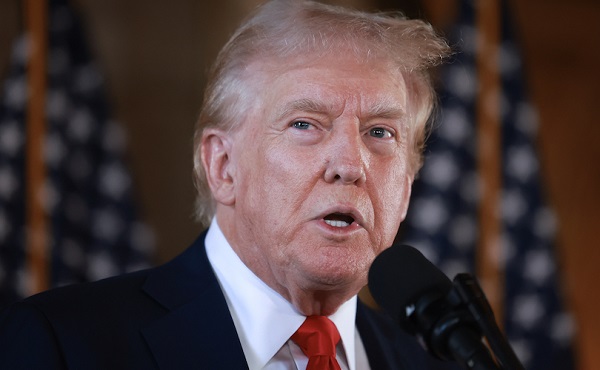
 Education2 days ago
Education2 days agoTrump praises Supreme Court decision to allow dismantling of Department of Education
-

 International1 day ago
International1 day agoMatt Walsh slams Trump administration’s move to bury Epstein sex trafficking scandal
-
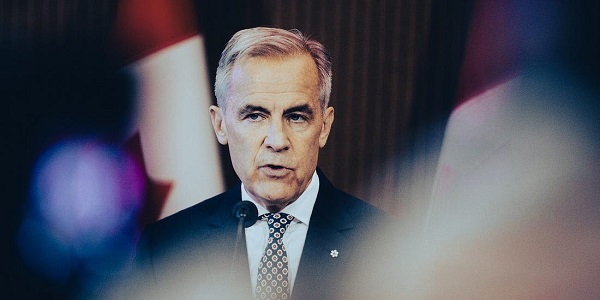
 National1 day ago
National1 day agoDemocracy Watch Blows the Whistle on Carney’s Ethics Sham
-

 Energy1 day ago
Energy1 day agoIs The Carney Government Making Canadian Energy More “Investible”?
-
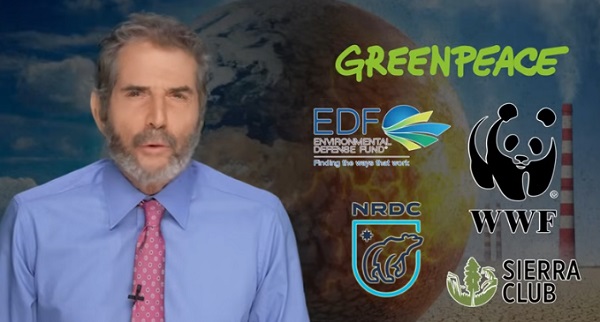
 John Stossel2 days ago
John Stossel2 days agoThe Green Industrial Complex: Power, Panic, and Profits
-

 Immigration23 hours ago
Immigration23 hours agoUnregulated medical procedures? Price Edward Islanders Want Answers After Finding Biomedical Waste From PRC-Linked Monasteries
-

 Business22 hours ago
Business22 hours agoDemocracy Watchdog Says PM Carney’s “Ethics Screen” Actually “Hides His Participation” In Conflicted Investments










